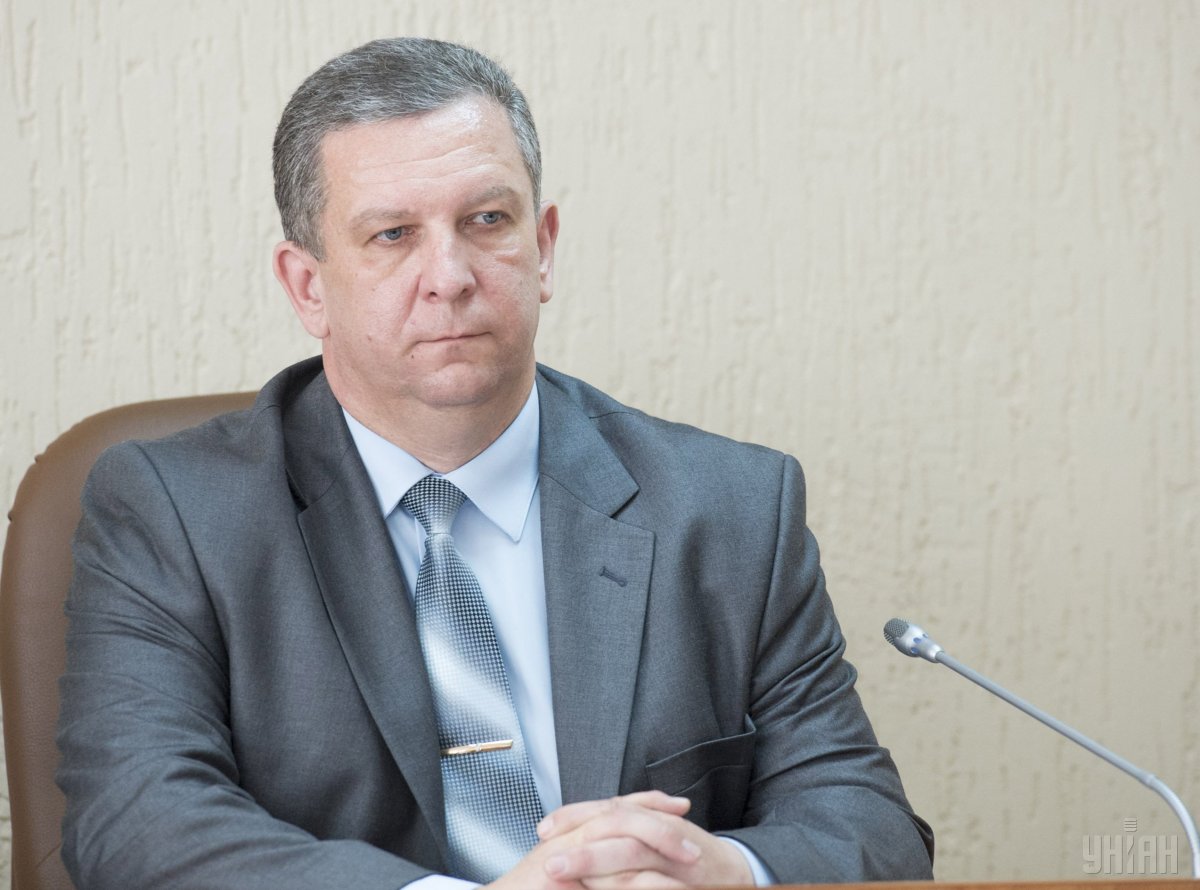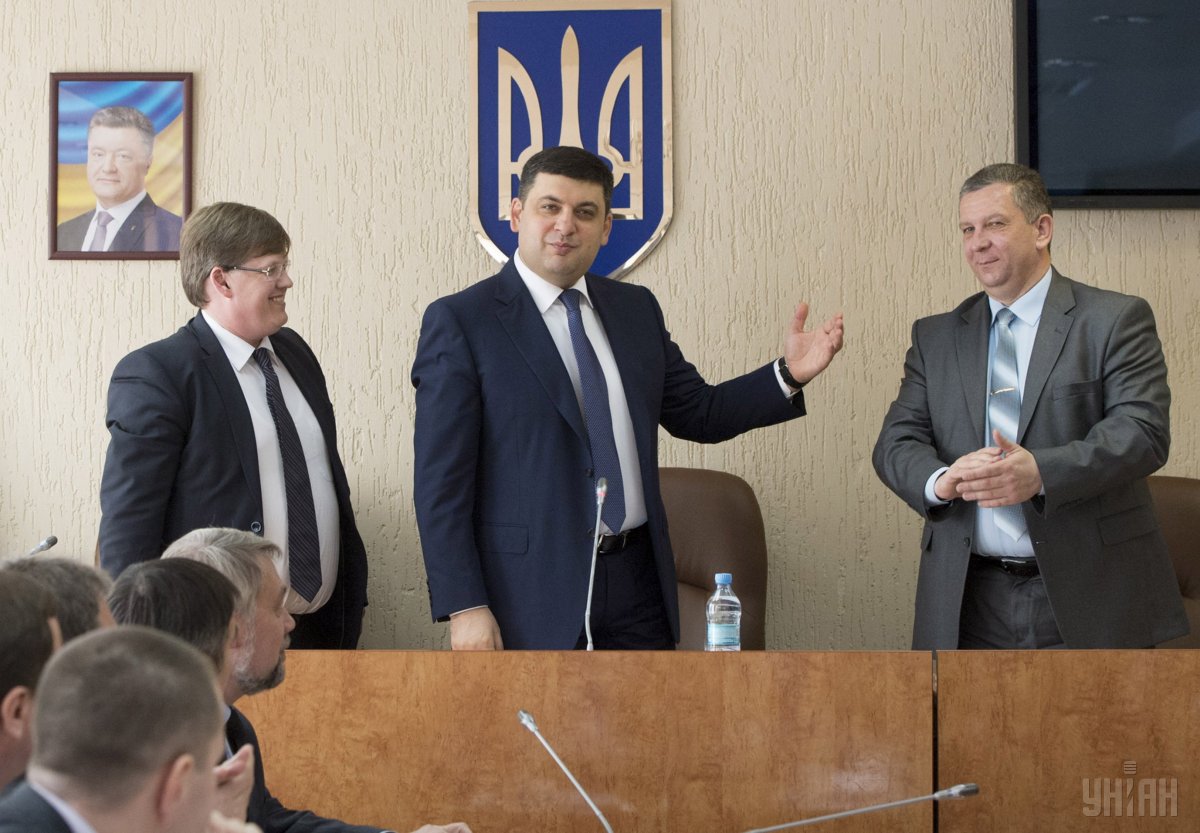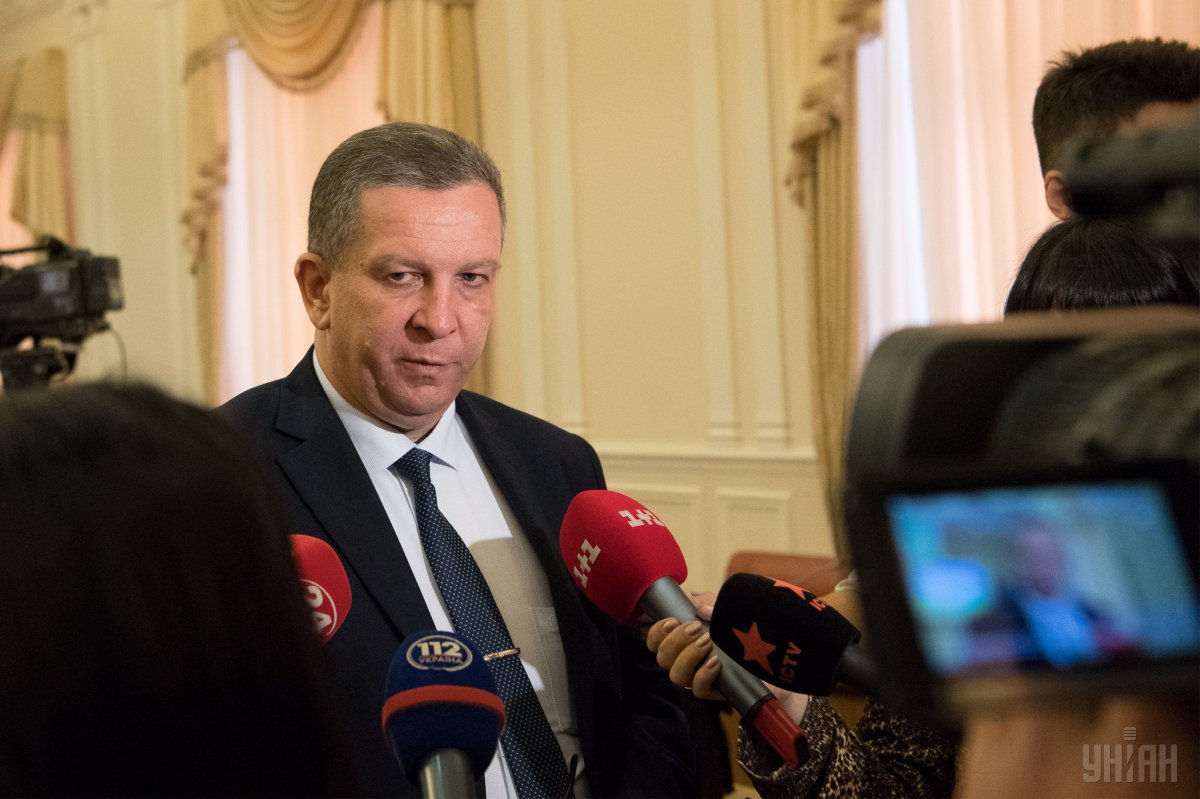
Minister of Social Policy: Subsidy recipients must report on purchases over UAH 50,000, otherwise they are in trouble
Social Policy Minister Andriy Reva in an interview with UNIAN has told who can apply for a subsidy this winter, who can be deprived of it and why, and also about the fact that the state cannot secure all the assumed social obligations.
Recently you stated that when the budget was drafted, the Ministry of Finance has allocated for the Ministry of Social Policy UAH 53 billion less than you requested. What plans of yours will not be covered with enough funding?
These are not my plans. My plans are slightly different, and they fit into the final figures. It’s just that there are certain laws the Parliament has adopted throughout 25 years of our independence. And given that everyone says that they love the Ukrainian people, they’ve always competed in who was showing more of this love.
As a result, there are lots of programs that require public funding. Being a minister, I must provide a complete layout of funds required to the Ministry of Finance, even though I personally see no such need. When we analyzed all the laws that are still in force and the requirements for public funding for their implementation, this amount is different from the one we are actually provided, which is exactly UAH 53 billion.
As for the procedure, we should discuss this at Cabinet meetings and determine which state programs will be financed in full in 2017, and which – partly, so that we could then put forward out proposals to the deputies. After all, it’s the Parliament which is to take the final decision. Therefore, along with the draft budget, certain bills are submitted to the Parliament, to stipulate these things. I, as a minister, have no right not to submit a budget a full request to the Cabinet because, pardon me, that would be a crime.
That is, some of this funding needs will be put on pause, won't it?
Yes. But they’ve not been funded for the past 25 years anyway. It’s just today, it’s all being actively discussed because the government does not only declare things, it also sticks to the principle of forming an honest budget. It hasn’t been done before.
What specific issues haven’t been funded for years?
This year we did not fund free public commute benefits. We have a huge number of people who are entitled to free public commute. But the 2016 budget provided no money for this article, which is almost UAH 2 billion, while the need to finance these benefits is defined by the Budget Code of Ukraine.
Now once again have to think about this issue. For example, I believe that this issue should be solved through monetization of benefits: not to reimburse the cost of commute to transport companies, but to provide compensations for the people within budget possibilities, letting the people decide how to make use of that money.
And it will be fair if we tell the people: "When the state becomes richer, we will pay you more. Meanwhile, you decide for yourself, where you spend the money." At the moment, there’s too much room for the abuse, you know.
Last year, what was the gap between the needs and allocated funds?
Take away nearly 15%, and adjust the sum considering inflation.
Recently you said that Ukrainians cover at their own expense some 12% of utility payments but during this heating season, they will pay for 15%. Does this mean an increase in mandatory payments?
No, mandatory payments will not increase. This share may be bigger or smaller depending on the volume of consumed utilities. Earlier, in 2014, the subsidy was divided into two parts: a mandatory part you had to pay and the one that is covered by the state subsidy. If you were saving on gas, water or else, you continued to pay that mandatory share, while the share covered by the State decreased.
Then we changed the system. We began to administer the subsidy stable in relation to consumption rates. Now you pay the accrued charges minus the subsidy. So if you save resources, you pay less while the subsidy remains unchanged.
That's why last winter, gas companies would tell people they needed to burn the pre-set norm of gas, otherwise the subsidy would be reduced – that’s because they were losing revenue due to the fact that the people were saving on gas.
As a result, we saw high levels of gas consumption last year because of an inflated rate of social consumption. Two years ago, the rate of consumption without a gas counter installed at 11 cubic meters per square meter of living space. This is despite the fact that the population actually consumed somewhere around 6 cubic meters. What was happening was that the people would spend 6 cubic meters of gas, gas managers would write off 11 cubic meters per square meter of living area, and gas suppliers received compensation for the difference in tariffs from the budget, even though many people have not used up the secured amount of gas. The gas the suppliers saved was then resold to the industry at a commercial price. In 2014, when we were drafting a decree to establish standards of utility consumption, gas suppliers were making some EUR 500 million a year using this uncomplicated scheme, according to expert estimates.
You said that the family is entitled to a subsidy for paying their utility bills if these bills exceed an average of 15% of their income. This means that some people could get a subsidy with only 5% of their income spent on utility payments, while the others would not get subsidies when they spent some 25% of their income?
Yes. Everything is calculated according to the formula. It is very simple. Take the average income per family member, say UAH 4,000. It is divided by 1,399 (that is a living wage for able-bodied individuals), divide by 2 and multiply by 15. So, it’s 21.44. This is the percentage that must be paid. Now calculate how much it is from UAH 4,000. It turns out to be UAH 857. That is, if the cost of utilities is over UAH 857, the subsidy covers all the difference.

One of our readers wrote to us… She was called up to the local social service and forced to write an explanatory note on where she got her land. This land she has had in ownership for decades, but now she was told that she had to be checked, as required by the Ministry of Finance. How is it related to the automatic extension of subsidies, they didn’t tell her. Tell us, what’s it all about?
This is what we call verification, which some previous leaders of the Ministry of Finance identified as one of the priorities of fiscal policy, with the aim to find "billions of stolen money." This is a classic example of what they receive as a result. Well, say, they find out that someone owns some land, but how does this affect the appointment of subsidies? It doesn’t. Can she be denied the appointment of subsidies based on this ownership? She can’t. So where is this “theft” then?
There was nothing good for the budget from this initiative. Meanwhile, she had to run through different offices, while someone got public funding.
What exactly may be the reason for being denied a subsidy?
Just one thing, which is the purchase worth more than UAH 50,000 during the year before applying for one.
What if someone has, for example, UAH 100,000 deposited in a bank account?
The deposit is OK.
What about inherited assets or an expensive gift?
If its amount exceeds UAH 50,000, it may become an obstacle for obtaining a subsidy. It all depends on the decision of the Commission, which must examine all the circumstances.
But next year we will probably also include deposits in the formula of calculating a household income for the appointment of subsidies.
That is, if you have more than UAH 50,000 deposited, you don’t get a subsidy?
Right. But, most likely, we will do it in May, after the end of heating season. And it’s right to include deposits, because they can be considered income, particularly the interest paid. We don’t see these revenues now. Only verification can tell.
When the commission for social protection in the regions decides on the appointment of subsidies, do they have information about whether the person made any expensive purchases during the year?
This information is available in the State Fiscal Service, and we claim this info when people apply for subsidies.
Does this scheme allow you to meet the deadline for the appointment of subsidies?
Yes, the scheme has been worked out. But the problem is not that the request may get a late response. It lays in the fact that when this information comes in, our personnel enter it into the computer manually. The automatic system works only in Vinnytsia.
So this problem can be solved simply by creating a single register of recepients of social benefits...
Right, automation is what we are developing now.
And what are the terms?
We want our social services to have a unified automated program for issuing subsidies, the one we don’t have today. Vinnytsia does. Our center is now upgrading it, and we will distribute it free of charge in all departments of social protection. It will be serviced by our center, a public body, for a certain fee under the contracts.
Can this registry be supplemented by other information, such as on the people who made expensive purchases?
This is slightly different, it is the problem of creating a single register of beneficiaries of state aid. When we talk about subsidies, there is a more local problem, the software that should automatically receive information from different sources and process it quickly.
A general system is a completely different thing. It will include not only the subsidies but forms of social assistance as well.

What is the deadline for you to complete the creation of such systems?
The local one we can complete quickly - within a year or two. A global one has been developed for 10 years, and it’s not completed yet. Recently I refused to sign papers stipulating conditions for holding a tender for its development, because some people have already tried to create such system and failed. Under those conditions I had to approve, the company that wins the tender was entitled to write a technical task and execute it. It would be the same as with the e-government.
Is it the state or the donors that provide funding for the development of this system?
Donors.
About how much is at stake?
Actually, the entire program requires UAH 300 million. It is clear that the system itself requires much less money, but still it's a lot of money, and it can't just be wasted like that.
So, now you set out to develop a program just for subsidies, right?
Yes, I believe we should not jump to global things but rather lay bricks, to be used one day to build up the system. And the faster, the better.
What if a person makes a purchase of over UAH 50,000 after obtaining a subsidy … How would you know?
They should report it.
And what if they don’t?
If they don’t report and we find out, it will be their responsibility. We have clearly defined cases when the person must report the circumstances affecting the process of issuance of subsidies or its size: if there have been changes in the family if something was purchased for over UAH 50,000. So in such cases, it is the applicant’s duty to report. By the way, this obligation is written down in the application form. Social inspectors verify information about the applicants’ income. And if they find out that people had not reported to us, then they may be in trouble. We can stop providing subsidies to them.
Can anyone be forced to return a subsidy?
If a person failed to fulfill their obligation, such question may arise.
Does it happen through court?
Either voluntarily, or through court.
Have there already been such cases?
Virtually none of such cases were reported as people are pretty much disciplined.
Do your social inspectors check all applicants or is it a selective check?
They file requests. They usually work in those risk groups that are more likely to abuse their right. A regular pensioner is unlikely to be verified. After all, what kind of additional income can they get?
Recently, the government increased the subsidy for the purchase of solid fuel and gas in cylinders for house owners. This compensation is paid in cash. For the purchase of wood and coal, it has grown by an average of UAH 1,000, to UAH 3,000, but for gas – not as essentially. Is the government trying so encourage people to use less gas?
Liquefied petroleum gas is used mainly for cooking. Meanwhile, solid fuel is used for heating. Very often, especially in villages, there are both an oven and a gas boiler in a household. And if we do not increase the subsidy for solid fuel, people will be burning gas. Therefore, in order to save gas that we’ve been importing more, we went that way. But the decision on what kind of fuel to use in winter remains at citizens’ discretion.
Dmytro Sydorenko (UNIAN)

